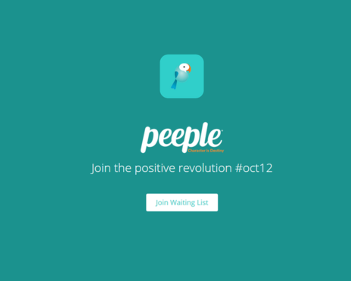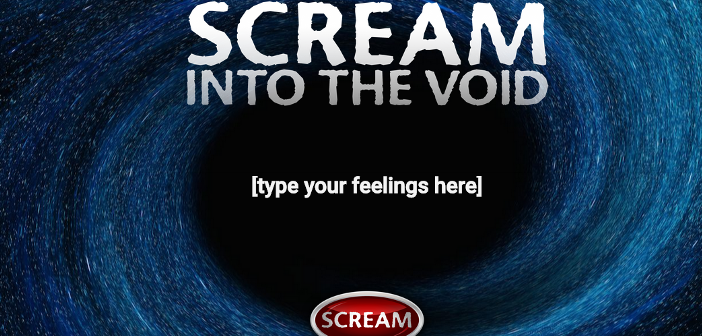New Positive ‘Peeple’ app is Actually Pretty Pointless
Last week, Julia Cordray trended worldwide for all the wrong reasons. The Canadian entrepreneur came under close scrutiny by the whole of the internet when she revealed her plans to launch a social media app that allowed everyone in the world to come under close scrutiny by the whole of the internet. The app is called Peeple, and was founded by Cordray and her business partner Nicole McCullough. The original concept behind Peeple seemed pretty simple – you get to rate individuals that you do or don’t know in actual life, and those ratings appear on the Peeple app for everybody to see, irrespective of whether or not that person has even signed up to the service. Cordray called it “Yelp for people.” Everyone else called it the worst social media platform to have ever existed.
Which is ironic considering it doesn’t actually exist yet. According to Cordray, she had planned to launch her app some time in November. In the mean time, she was going to ensure that everyone knew exactly how her company was going to revolutionise the way we interact with other human beings. Speaking to the Washington Post, she said
People do so much research when they buy a car or make those kind of decisions (…) Why not do the same kind of research on other aspects of your life?

Possibly because very few people like the idea of somebody viewing unapproved – and potentially untrue – personal information about them on the internet. And also because human beings and cars are intrinsically different. Cordray doesn’t really see it that way though.
Before developing Peeple, she founded her own recruitment agency in Calgary. The company is called Career Fox, and they pride themselves on being “hunters of talent,” who “get to sell people.” So, it’s not really difficult to see where Cordray got her phenomenal idea from. It’s also not difficult to see why everybody hated it so much.
Since the Washington Post published their article, the internet has been wrought criticism towards the app, and Cordray herself. Some of it has been cruel, a lot of it has been harsh, but mostly, it’s been fairly accurate. One Twitter user compared the app to an online version of the Mean Girl’s burn book, another stated that they would rate 0/5 for both Cordray and McCullough when the app launched, while others simply condemned the company’s active involvement in cyberbullying. As far as making people feel shit about themselves on the internet goes, it seems like Peeple would be up there with Ask.fm, Formspring, and that time that no one liked your new profile picture. Except, in all of those cases, you could actually choose whether or not to share your mortification with the rest of the world. Last week when everybody first heard about the Peeple app, you couldn’t.
But, of course, that’s all changed now.
Following all the backlash, warranted criticism, and actual death threats, Cordray took to her own social media accounts to set the record straight. She claimed that her interview with the Washington Post had been wildly misinterpreted, and that Peeple is not an app to tell people how utterly horrendous they are, but should be used only to promote positivity, and to make everyone feel great about themselves. In a statement issued on LinkedIn, she said
I’ve received death threats and extremely insulting comments aimed at me, my investors, and my family (…) Here’s the catch. I can’t delete any of them. That’s not the world I want to live in and neither should you (…) I want the world to be positive and this is how I’m going to inspire it by creating the world’s largest positivity app. Be part of the positive revolution. Join Peeple today.
 Cordray also added that Peeple would operate entirely as an opt-in system, meaning that ratings or comments cannot be shared about anybody who has not signed up to the site, or about someone who chooses not to approve their ratings or comments. So basically, it’s a site that allows you to filter content to build an exceptionally refined online version of yourself that you’re happy to present to the world… Or, in other words, every social media platform already in existence. Over night, an app that promoted vicious, anonymous hate became something entirely different – utterly pointless. And all because its founder had experienced the very thing she was advocating for: loads of strangers on the internet telling you just how awful you supposedly are.
Cordray also added that Peeple would operate entirely as an opt-in system, meaning that ratings or comments cannot be shared about anybody who has not signed up to the site, or about someone who chooses not to approve their ratings or comments. So basically, it’s a site that allows you to filter content to build an exceptionally refined online version of yourself that you’re happy to present to the world… Or, in other words, every social media platform already in existence. Over night, an app that promoted vicious, anonymous hate became something entirely different – utterly pointless. And all because its founder had experienced the very thing she was advocating for: loads of strangers on the internet telling you just how awful you supposedly are.
But let’s imagine for a minute that Peeple was never about nasty comments and a rating system so brutal it could only lead to mass plummeting of self-esteem and probably a lot of crying. Let’s say that people do use it to say nice things about eachother. Let’s imagine that employers give you lots of jobs because you just looked so damn impressive on your Peeple profile. Let’s pretend that the app is, and has always been, about promoting positivity. It all sounds lovely, but we don’t need it.
If someone wants to see a heavily edited version of me they can pop on my Facebook feed and have a look at all the posts, photos, and events I’ve chosen to tag myself in. If I want to feel good about myself I can go on Tinder and see how many fellas want to match with me based on the 6 specific pictures I have carefully selected to showcase just how strong my selfie game is. If somebody wants to give me a job they can have a scroll through my LinkedIn and look at all the really impressive and not at all exaggerated things I have done. We don’t need an app to present a superlative version of ourselves to the world. We already have so many.
John Oliver launched his own website to combat Peeple’s function. It’s called ScreamIntoTheVoid.com, and I personally have found it more useful than I’ll probably ever find Cordray’s app. Since issuing her statement, most traces of Peeple have been removed from the internet, leaving only a fairly empty website and a new launch date – October 12th. One can only speculate as to what kind of astonishing developments will befall us on this day. Maybe Peeple and Cordray will lead the social media revolution into a new age of positivity and being suspiciously nice to people on the internet.
Or maybe – just maybe! – nothing will happen at all.
Images via montrealgazette.com
bidnessetc.com
screamintothevoid.com
wethepeeple.com

